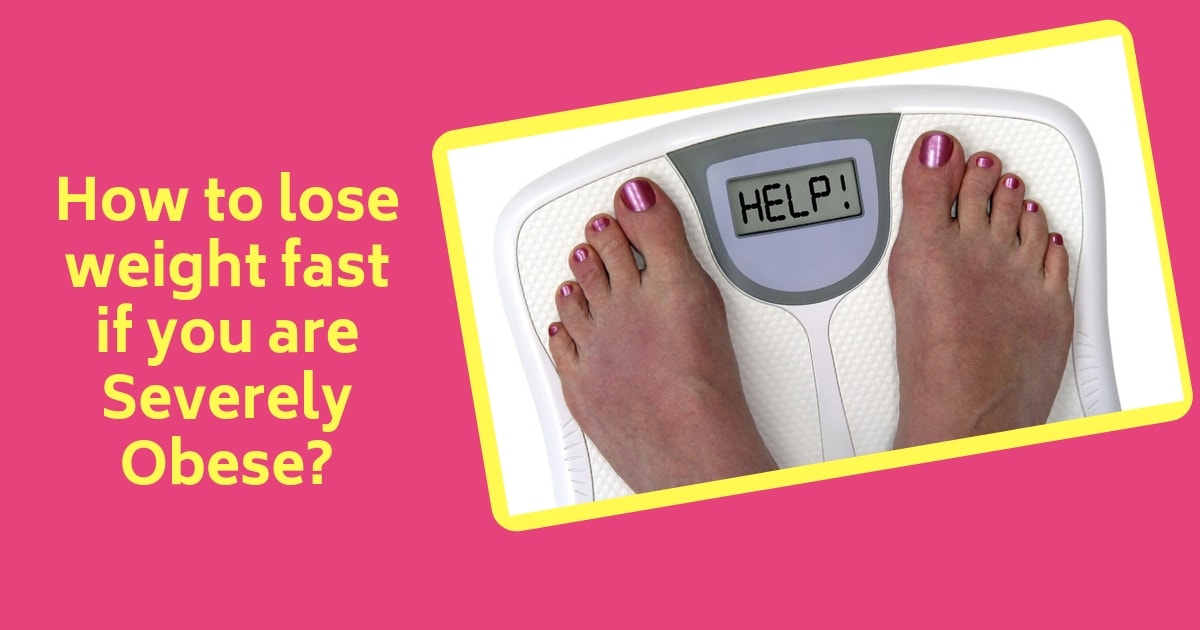How to lose weight fast if you are Severely Obese?
When a person is severely obese, it means their BMI is between 35 and 40. Is there a magic formula or weight loss regimen for someone who is severely obese to reduce their weight fast? The body took its time to gain weight and hence at best the reverse can be true. Hence there is no magical weight loss formula. However if severely obese persons do the following, they can lose their weight gradually and sustain the weight loss to live healthy for the rest of their life.
Diet Plan and Restrictions
- Diet does not mean going hungry or fasting or crash dieting. It actually means eating healthy. If you are able to cut around 500-1000 calories per day, then you might lose anywhere between 400gm to 900gm per week. The weight loss pattern varies from person to person and it depends on many factors like body metabolism, height of the person, nature of food consumed (how strict was the person in dieting), lifestyle, etc.
- Determine the approximate calorie intake you will take a day. Multiply your weight in kg with 22. The value that comes is the calorie intake you should restrict yourself to. For example, if your weight is 100 kg, then your daily calorie intake should not be more than 2200 calories.
- Your calories from carbohydrate should be around 12.5% of the total calorie intake in grams. Your calorie intake from protein should be 6.25% in grams. Similarly the calorie intake from fat should be 2.78% in grams. For example if you weigh 100 kg, your total calorie intake should be restricted to 2200. Based on this calculation, your carb intake should be 275 gm (2200*12.5%). Proportionately, protein and fat intake per day should be capped at 137.5 gm and 62 gm respectively.
- When choosing carb foods, do not choose food made of refined flour or sugar like white breads, desserts, etc. Choose complex carbs like millets, banana, sweet potatoes, etc. They have fibre in them which is an added benefit. When choosing protein and fat, include whole eggs, lean cut meat like chicken, fish, nuts that are rich in omega-3 fatty acids and other unsaturated fats.
- The above diet can go well with people who are severely obese but do not suffer from co-morbid conditions. For people who are severely obese and suffer from co-morbid conditions, and for people who are very severely obese, you should keep your doctor in the loop when you diet. Your doctor might modify your diet plan as per your body conditions. DO NOT GO BY THE DIET PLAN STATED ABOVE.
Modifications to your lifestyle
- It is said the food we consume contributes 60-70% for our weight loss efforts. The rest is about lifestyle modifications.
- Start by incorporating a moderate exercise regimen in your life. Incorporate both weight training and cardio in your exercise regimen. Do not lift more weights or do not do any strenuous running. They might not only make you tired easily due to your weight, they can also demotivate you from continuing and you might also risk injury. Practical problems abound when people above BMI 35 hit the gym. So be careful.
- Health issues when you are morbidly obese can be a hindrance to your exercise plan. It is always better to consult your doctor and then start your exercise regimen.
- Also many severely obese or morbidly people have problems continuing their exercise regimen in a gym. Read an interesting blog on the same here.
Obesity is definitely a disease and every severely and very severely obese person should come out of obesity to lead a healthy life.
Give yourself a year time to check if you are making progress in your weight loss program. You should be successful in both your diet maintenance and workouts. If you see positive results, continue the same life long. If you do not see any results within a year, may be you can ask the best bariatric surgeons about weight loss surgery options.

